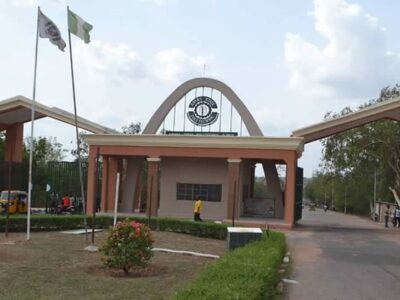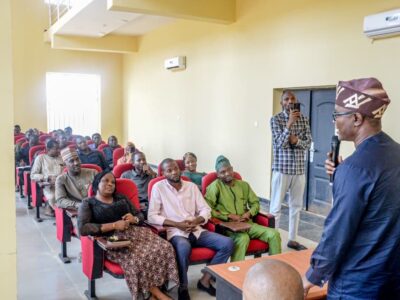The Chairman of ICPC, Prof. Bolaji Owasanoye, has declared that the rising level of corruption in public offices and the country as a whole to community pressure and expectations of people in the office.
The Independent Corrupt Practice and Other Related Offences Commission (ICPC) chairman said this on Tuesday in Abuja at a National Policy Dialogue on Corruption, Social Norms, and Behaviour Change in Nigeria
The event was organised by the ICPC in collaboration with the Anti- Corruption Academy of Nigeria supported by MacArthur Foundation.
Owasanoye, who expressed concern over the prevalence of corruption in the country across the ethnic and religious divides, explained that people expected officeholders to confer benefits from the office they were holding on members of the community regardless of whether such benefits were corrupt practices in themselves or they came from the proceeds of corruption.
“The timing of this Policy Dialogue on Corruption, Social Norms and Behaviour Change in Nigeria, could not have come at a better time than now, when the foundation of our social values and norms has become seriously threatened.
“ In actual fact, a lot of changes are taking place across the wider Nigerian society. But more worrisome to me, is the emergence and pervasive spread of corruption-inducing social norms across all ethnicities and religious divides.
“In spite of widespread cultural and religious perception of corruption as a negation of societal values, a survey carried out by ACAN-ICPC in 2020 revealed that corruption among public servants is enabled by community ambivalence towards the proceeds of corruption,” he said.
He said that as high as 69 per cent of the public servants surveyed indicated that their community would accept monetary gifts above their annual salaries without questioning the source of the money.
“Corruption is therefore fueled by community expectation of people in office.
“There is for example a general belief that groups, networks, and communities expect the holder of an office to confer benefits from (or of) the office on members of the community.
“This is regardless of whether the benefits are corrupt practices in themselves e.g., nepotism, or if the benefits come from proceeds of corruption e.g., embezzlement,” he said.
According to him, there is the common expectation that people in top positions should donate huge sums of money at public functions.
“It is equally expected that government officials should enrich (and/or confer other benefits on) themselves from their office.
“Relations and community members of public officials see nothing wrong with all these, even when they condemn such practices happening in other communities – a case of “it is good for us and not for other communities”.
He said that over the years, the law and order approach to combating corruption had dominated the activities of the anti-corruption agencies.
“Although the law and order approach is necessary to curb corruption, however, it is not sufficient as it has to be complemented with some form of a self or group-regulatory mechanism to achieve the desired behaviour change in both government and society.
“This is where a discussion of corruption, social norms and behaviour change becomes relevant.
“Achieving the goal of behavioural change in a society with endemic corruption involves a complex and sometimes a long process that requires a multi-sectoral brainstorming session to develop appropriate policy framework,” he said.
The ICPC chair said that this was where a policy dialogue platform offered a unique and veritable opportunity to curb corruption. (Nigerian Pilot)










Comments